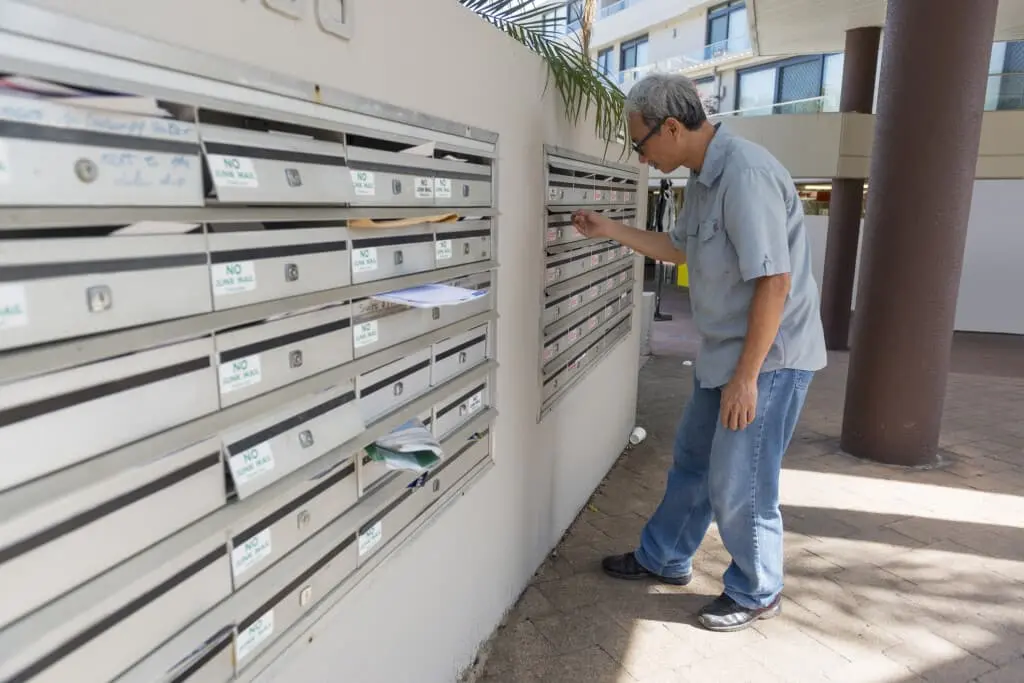Important: We updated this article in June 2025 after fact checking against current Social Security Administration policies and data. In December 2023, the Social Security Administration (SSA) paid disability benefits to 758,143 Florida residents. That’s 3.24% of the state’s total population in 2024. If your health forces you to stop working before you turn 67, don’t give up. You may qualify for monthly disability payments that pay as much as full retirement benefits do. Keep reading to learn how to file for disability in Florida, average pay amounts, how long it takes, and tips to help the process go faster.
How to File for Disability in Florida: Key Takeaways
- There are two programs that pay Florida disability benefits, and the Social Security Administration (SSA) manages them both. The first one is called Social Security Disability Insurance (SSDI), and the second is Supplemental Security Income (SSI).
- Medical conditions alone won’t get you disability benefits from either federal program. Instead, the SSA first looks at whether you’re eligible based on each program’s technical requirements. This includes things like your work history, monthly income, and whether you receive any other current benefits. Regardless, here’s a list of most approved health conditions so you can look for yours.
- If you don’t qualify for SSDI or SSI, there are other types of disability benefits that may be available to you. These depend on things like your military service, whether your problems started at work, and employer benefits package.
- You must prove you’re unable to work for a minimum of one year to qualify for disability benefits from the SSA. No government programs pay short-term or temporary disability for issues like pregnancy or major surgery in Florida.
- You’re better off having an attorney help you file than trying to navigate the application process alone. The SSA denies more than 1 in 5 people who apply for the first time, and attorneys can help you avoid any mistakes.
Option #1 for Florida Disability Benefits: Social Security Disability Insurance (SSDI)
This first program, SSDI, provides benefits to disabled workers who pay Social Security taxes out of every work paycheck. It functions like a federal disability insurance program that you pay premiums for every month with your tax dollars. For this reason, SSDI also provides benefits to eligible dependents of disabled workers who qualify.
How to File for Disability in Florida from SSDI: Meeting the Program’s Eligibility Rules
Here’s how to tell whether you have SSDI coverage before you apply for these benefits:
- You worked at least 5 in the past 10 years full time while paying Social Security taxes. This is the easiest way to confirm you have the 40 work credits needed to technically qualify.
- Your current monthly individual income is less than $1,620 (or $2,700 if you’re blind). If you make more than that, which is what the SSA calls “substantial gainful activity,” then you won’t qualify as disabled.
- You’re unable to work for a minimum of 12 months in a row, specifically due to one or more medical conditions. If your doctor diagnoses you with a terminal illness, that should help you qualify, for example. But if you’ll get better in less than one year and start working again, then the SSA will reject your claim. You’ll need to also submit medical evidence that supports your request, along with an SSA function report.
- You’re younger than 67 and do not currently receive benefits from any other SSA program, like regular Social Security. Since Social Security disability benefits automatically turn into regular retirement at 67, you cannot draw both at once. And in fact, SSDI is the only way to get your full Social Security benefit before your 67th birthday. File for early retirement at 62, and you’ll receive benefits that pay 30% less each month for life.
How Long Does it Take to Get My First SSDI Payment After Filing my Florida Disability Claim?
The SSA needs about 3-5 months to review every SSDI application. Federal law states you cannot receive any payment until after a five-month waiting period passes first. So, for most people, the fastest SSDI pays benefits to anyone is about 6 months after you file.
However, hundreds of medical conditions can qualify for faster approval through the Compassionate Allowances initiative. If your condition’s on that list and you meet all other requirements, expect claim approval within 30 days (about 3 weeks, average).
Pro Tip: An initial application that includes medical records can usually help shorten your approval timeline for benefits.
How Much Money Does SSDI Pay Each Month in Florida?
In 2025, the most money any person can receive in SSDI under federal law is $4,018.
However, the average SSDI benefits payment nationwide at this time is $1,580.
If you file for disability in Florida and get SSDI benefits, assume your monthly pay rate will fall somewhere between those two amounts. We say this because in April 2025, the average SSDI benefits awarded for newly approved claims was $1,751.23:
- Men were awarded an average of $1909.88 per month
- Women got approved for $1,566.29 per month in benefits
Eligible family members can also get what’s called dependent benefits from SSDI upon your approval. Your current or former spouse and children can get up to 50% of your SSDI amount paid every month. According to the SSA, in 2025, the average SSDI benefit for a family of three is $2,826 per month.

What Happens to SSDI Once I Reach Full Retirement Age for Social Security?
Florida SSDI payments are not permanent once the SSA approves your claim. Instead, you must pass what’s called a Continuing Disability Review (CDR) every 3-7 years once payments begin. As long as your medical condition doesn’t improve and you stay in touch, though, you can keep your SSDI.
Once you turn 67 years old, all Social Security disability benefits automatically convert into regular retirement payments. The pay amount you get every month does not change, and you don’t need to do anything to make this happen. But your direct deposit could change to a different day of the month, based on your birth date.
Will SSDI Approval in FL Provide Me with Health Insurance?
Yes, and it’s one of the only ways to get access to Medicare coverage before you turn 65 years old. On the 24th month after your first SSDI payment goes through, you’ll qualify for Medicare insurance.
Your enrollment in this program is automatic, so you don’t need to file any forms to access this healthcare coverage.
Option #2 for Florida Disability Benefits: Supplemental Security Income (SSI)
Unlike SSDI, Supplemental Security Income has no work requirements to meet. This federal program pays monthly benefits to low-income disabled or blind children and adults as well as seniors aged 65+.
How to Meet the Medical Evidence Requirements for SSI Benefits
If you’re blind or meet the SSA’s definition of “disabled,” then you’re medically eligible for either SSI or SSDI. That said, if you’re younger than 65, you’ll need to submit complete medical documents with your SSI disability application. Examples of the type of medical evidence the SSA looks for may include:
- Doctor’s reports showing you receive regular treatments for your medical condition but your symptoms don’t improve
- A residual functional capacity (RFC) evaluation form completed and signed by your doctor
- If you’re applying for a mental health issue, you’ll need to fill out and submit a different version called a mental RFC form
- Any relevant tests, scans, lab reports, or prescriptions you take to manage your health issues
Important: If you’re at least 65 years old or were born blind, these medical evidence requirements don’t apply to you. But if you’re younger, you need to show you’re under a doctor’s care and have recent medical evidence supporting your claim.
What the SSI Program Means by “Low Income”
Federal law says that in 2025, your household income must be less than $2,019 to qualify for SSI. That means they’ll look not just at your income, but how much everyone in your home earns each month.
Job income isn’t the only thing they’ll look at, either. Expect the SSA to review any of the following, if you get these types of payments every month:
- Alimony
- Child support
- Interest earned from your savings, money market account, or mutual fund
- Money you inherited from a relative or hold in a trust under your name
You must also own few to no assets which you can easily sell for cash ($2,000 for individuals, or $3,000 per couple).
SSI Pays No More Than $967 per Month for Individuals, or $1,450 for Couples
This amount can go up every December in years when Congress approves a cost-of-living-adjustment (COLA) increase. Once you receive benefits from SSI, you may also qualify for other financial aid programs in Florida:
- SNAP (Supplemental Nutrition Assistance Program) to access food benefits
- TANF (Temporary Assistance for Needy Families) for cash benefits to families with children
- Call 211 or visit 211.org to learn about other programs that help pay utility bills and provide cheap housing for disabled residents
Will SSI Approval Help Me See a Doctor?
Yes! The same month you get your first SSI disability payment, you’ll also qualify for Medicaid health coverage.

How to File for Disability in Florida: You Have 3 Options
Apply Online (SSDI Claims Only)
If you’d like to apply online, you must only file for SSDI benefits, not SSI. You can do this at the SSA’s website once you complete your MySocialSecurity account setup with 2-factor authentication.
Apply In Person at Your Local Social Security Office
Since the Trump administration recently downsized the SSA, you must make an appointment before you arrive. Plan to spend 4-5 hours at your local office in person filling out paperwork. Unfortunately, you cannot take any forms when you leave to complete the application process at home. Be sure to have all documents you’ll need to fill out your forms when you arrive. To see a complete list of what to bring, see our 8 vital documents application checklist here.
Have a Social Security Lawyer File Your Disability Application
Working with a lawyer to file your claim makes you nearly 3x more likely to receive benefits on your first attempt. Even better, you’ll pay nothing out of your own pocket to have a professional submit your paperwork for you.
How to File for Disability in Florida and Triple Your Approval Odds
An experienced Social Security attorney can potentially get your first payment approved within 180 days. Sign up for a free, no-obligation consultation today through our website to learn whether any program might award you benefits. This service is always free and doesn’t require you to do anything else. A nearby attorney will contact you to discuss your claim and your chances of getting benefits, how long it currently takes, and more.
We’ve helped nearly 4 million disabled people nationwide get professional help applying and qualifying for monthly benefits. If you’re not sure what to do next, we want to help you! Click the button below now to get started:
Get Your Free Benefits Evaluation
Lori Polemenakos is Director of Consumer Content and SEO strategist for LeadingResponse, a legal marketing company. An award-winning journalist, writer and editor based in Dallas, Texas, she's produced articles for major brands such as Match.com, Yahoo!, MSN, AOL, Xfinity, Mail.com, and edited several published books. Since 2016, she's published hundreds of articles about Social Security disability, workers' compensation, veterans' benefits, personal injury, mass tort, auto accident claims, bankruptcy, employment law and other related legal issues.

